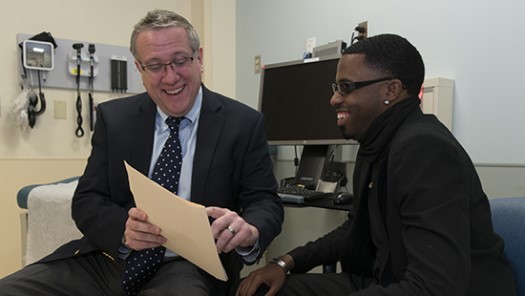Told You Have Prediabetes?


Sleep apnea is a common and potentially devastating sleep disorder that affects nearly 12 million people in the U.S.
Your breathing becomes very shallow, or you may even stop breathing from a few seconds to a few minutes. This can happen 30 times or more an hour.
You may resume normal breathing with a snorting or choking sound.
If you have sleep apnea, you may snore loudly, although snoring does not mean you have it.
Obstructive sleep apnea, the most common type, is caused by relaxation of soft tissue in the back of the throat that blocks the passage of air. This is also one of the most common conditions our sleep disorder specialists treat at the University of Maryland Sleep Disorders Center.
Risk factors include age, being overweight, male, having a small airway or a family history of sleep apnea. Children with enlarged tonsils or adenoids are also at risk.
You may have sleep apnea if you have one or more symptoms that include:
People with untreated obstructive sleep apnea are at higher risk for high blood pressure, stroke, heart disease fluid retention, abnormal heartbeats and insomnia.
Because you are not sleeping well, you may be sleepy or tired during the day. This tiredness can affect your concentration, memory and ability to do activities like driving or using heavy machinery safely.
A sleep study can help determine if you have sleep apnea. You spend a night in our sleep lab while a technician monitors and records your sleep patterns.
Although obstructive sleep apnea can be life-threatening, it is treatable. Depending on your condition, sleep apnea treatment may include:
Make an appointment with one of our sleep specialists.
